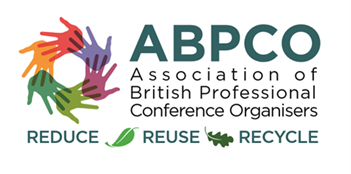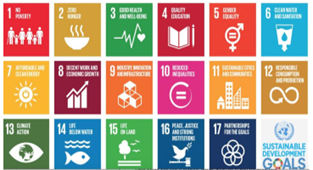
ABPCO Sustainability Charter
This charter encourages and supports our members to create and implement sustainable business practices, leading to a reduced environmental impact and a more sustainable future for all.
|
We know that meetings can achieve great things; knowledge sharing, learning, fellowship, collaboration and even cures for illness and the solving of global problems or political challenges. When it comes to sustainability we can go so much further and drive specific changes that can directly impact the world around us and what that world will be for future generations. Now is the time to take a stand as an industry and include sustainability goals and targets in all our events.
|

|
With an incomparable reach, the meetings industry has a critical role to play in moving forward the sustainability agenda, with millions of attendees and stakeholders engaged in meetings every year, spanning a wide cross section of all sectors of business, government, academia, and community. The work of the meetings industry wields meaningful influence on how knowledge and business practices evolve, and supports economic, professional, social, and academic advancement to the benefit of all.
To reduce the environmental impact of events and support a more sustainable future for all, ABPCO members are asked to consider implementing the following actions:
- ABPCO members commit to advancing access, diversity, equity, inclusion, and wellbeing of all people, as priorities in their workplace and at events, so supporting sustainable growth across the UK Events Industry.
- Comply with and exceed where possible, all applicable legislation, regulation and codes of practice relating to sustainability.
- Make sustainability considerations a core element of the business planning process by including sustainability as an agenda point for all meetings.
- Build sustainability considerations into the purchasing and selection process. Include detailed questions on sustainability practices as part of the Request for Proposal process.
- Develop a sustainability committee who plan for each client event, including elements for legacy and social justice opportunities, and create a communications plan to engage all stakeholders, including; sponsors, exhibitors, exhibition contractors and attendees to gain their commitment, engagement and support, in following sustainability practices.
- Follow the principle of reduce, reuse, recycle and build measurements to evaluate your impact.
Green Travel Pledge
Green Travel Pledge is the rail industry’s commitment to provide detailed, accurate and reliable data on the carbon emissions of rail journeys so that:
- The sustainability benefits of travelling by train become clearer and even more compelling;
- Businesses and their travellers are empowered to make more informed choices;
- The business travel sector can make data on rail journey emissions easier to access and use at the point of sale;
- Businesses can accurately measure the emissions of their rail travel to track their progress against sustainability goals.
The pledge will help encourage businesses to modal shift away from car and plane to stimulate additional business journeys by train.
- Taking the train on the top 100 business routes in Britain is
- Almost nine times greener than using a petrol/diesel car
- More than four times greener than using a plug-in hybrid electric car
- Almost two-and-a-half times greener than using a battery electric car
This is the first time the rail industry has combined granular data on train occupancy, fuel type, exact journey distance and many other factors to create detailed, accurate and reliable carbon emission data for rail business travel. The route information and further details can be seen here.
More information
In partnership with GDS-Movement and isla, VisitBritain have developed some sustainability toolkits to support PCOs/DMOs/CVBs and their local partners to plan more environmentally friendly events.
The resources include an organiser guide, a responsible delegate guide, as well as call to action to request practical checklists to support decision making on travel and transport, energy, production and food and wate
download the sustainability packs here